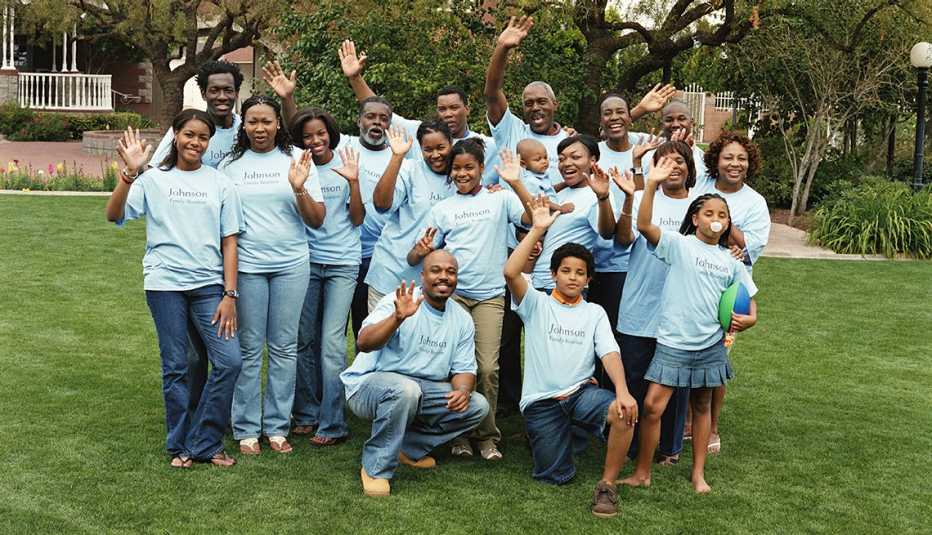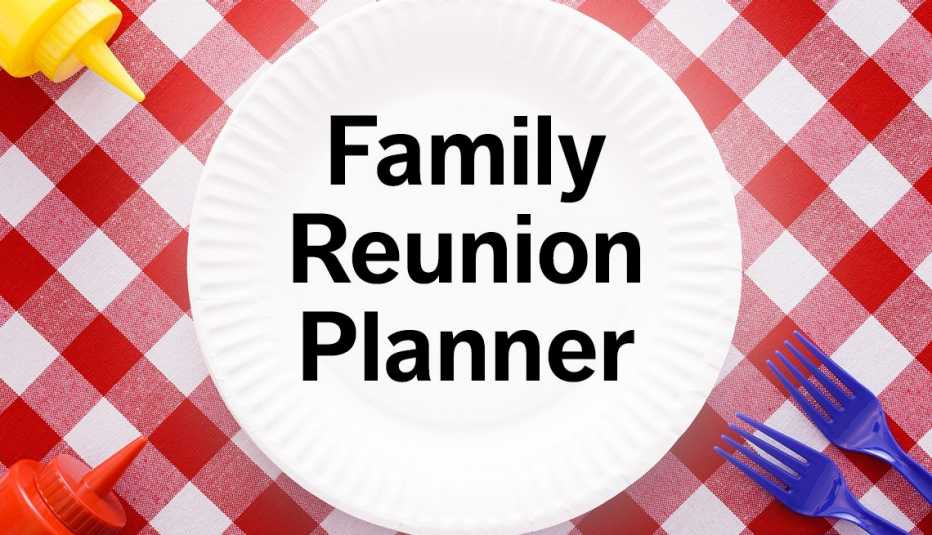Staying Fit


A family reunion is a way to connect, keep ties strong, share insights about family history and just plain enjoy the company of relatives who live near and far.
Many families are anxious to get back to holding reunions, both large and small, after postponing them because of the pandemic. But reunions can be more than a big party or a celebration, says Suzanne Vargus Holloman, co-director of the Family Reunion Institute. These family gatherings can encourage attendees to delve into genealogy, address family health issues and foster social supports such as youth mentoring.
“One of our mottoes is that family reunions are more than a picnic,” Holloman says. “These reunions were organized to pass down history and impart values — to support the family and extended family in the various ways that were needed. But they have grown into major events.”


AARP Membership— $12 for your first year when you sign up for Automatic Renewal
Get instant access to members-only products and hundreds of discounts, a free second membership, and a subscription to AARP the Magazine.
“When are we going to have the reunion?”
Eighty-year-old Rev. Doug Harris says family reunions have been a constant for much of his life. But it wasn’t that way from the start. In fact, he was too busy falling in love to attend his family’s first reunion.
“It was the week I met my wife, and I declined,” says Harris, who lives in Swedesboro, New Jersey, and is a former marketing and communications executive. He may have skipped that family reunion in 1973, but he and his wife, Myrna, have been to dozens of them since. Most were for his father’s family and reunited branches of his African American family from southern Virginia and New Jersey. The most recent took place in August 2021 in Lancaster, Pennsylvania, and because of COVID-19, it drew only about 50 people — down from a pre-pandemic range of 80 to 100.


































































More on Home and Family
5 Bucket List Summer Vacations for Multi-Generational Families
Reunite with loved ones at these unforgettable destinationsFive Fun Ideas for Vacations With Young Grandkids
Kids 11 and under will love these destinations, from California to Quebec5 Trips That Teenagers Will Love
These destinations are great fun for older kids and grownups alike